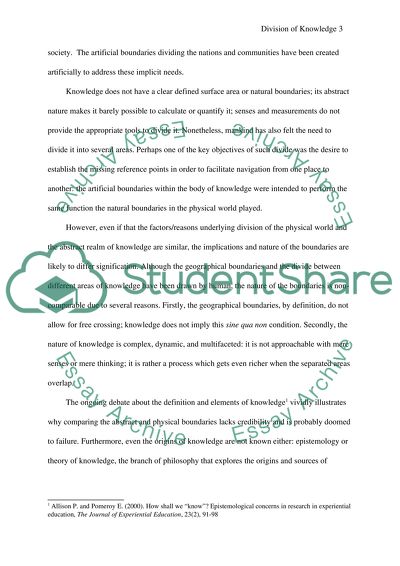Cite this document
(The Nature of Boundaries Personal Statement Example | Topics and Well Written Essays - 1500 words, n.d.)
The Nature of Boundaries Personal Statement Example | Topics and Well Written Essays - 1500 words. https://studentshare.org/geography/1526522-if-someone-claims-that-both-the-division-of-knowledge-into-disciplines-and-the-division-of-the-world-into-countries-on-a-map-are-artificial-what-does-this-mean
The Nature of Boundaries Personal Statement Example | Topics and Well Written Essays - 1500 words. https://studentshare.org/geography/1526522-if-someone-claims-that-both-the-division-of-knowledge-into-disciplines-and-the-division-of-the-world-into-countries-on-a-map-are-artificial-what-does-this-mean
(The Nature of Boundaries Personal Statement Example | Topics and Well Written Essays - 1500 Words)
The Nature of Boundaries Personal Statement Example | Topics and Well Written Essays - 1500 Words. https://studentshare.org/geography/1526522-if-someone-claims-that-both-the-division-of-knowledge-into-disciplines-and-the-division-of-the-world-into-countries-on-a-map-are-artificial-what-does-this-mean.
The Nature of Boundaries Personal Statement Example | Topics and Well Written Essays - 1500 Words. https://studentshare.org/geography/1526522-if-someone-claims-that-both-the-division-of-knowledge-into-disciplines-and-the-division-of-the-world-into-countries-on-a-map-are-artificial-what-does-this-mean.
“The Nature of Boundaries Personal Statement Example | Topics and Well Written Essays - 1500 Words”. https://studentshare.org/geography/1526522-if-someone-claims-that-both-the-division-of-knowledge-into-disciplines-and-the-division-of-the-world-into-countries-on-a-map-are-artificial-what-does-this-mean.


